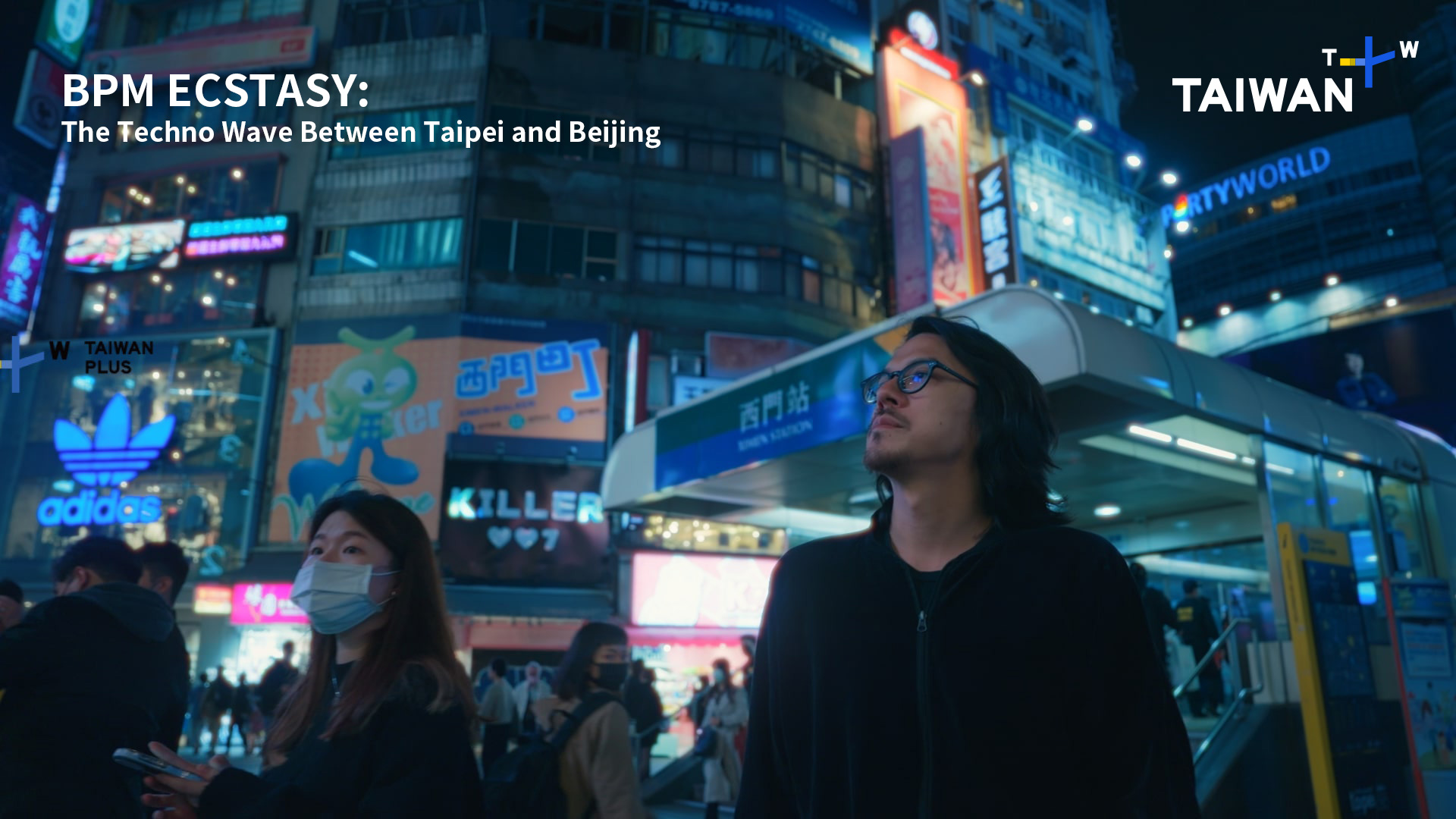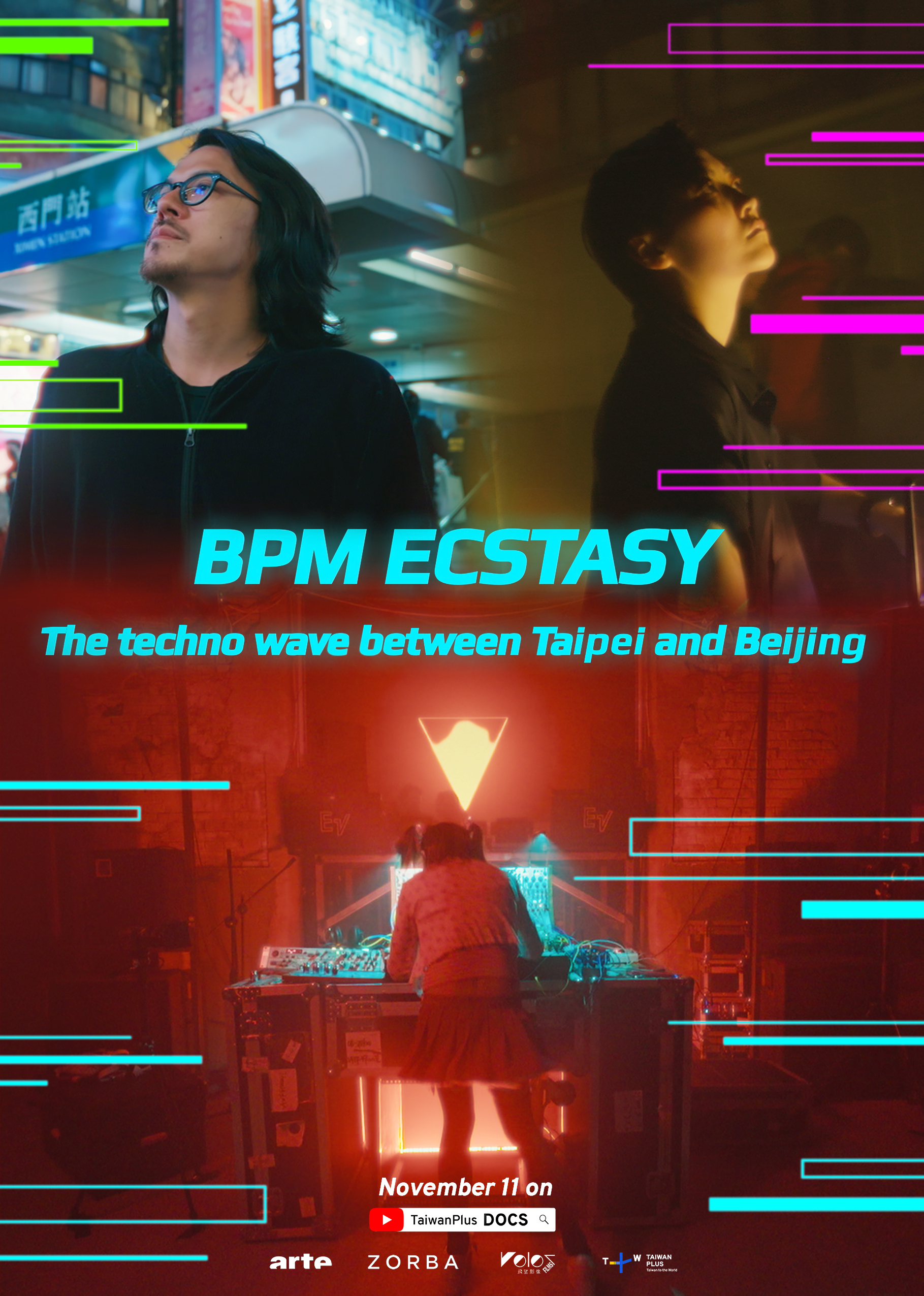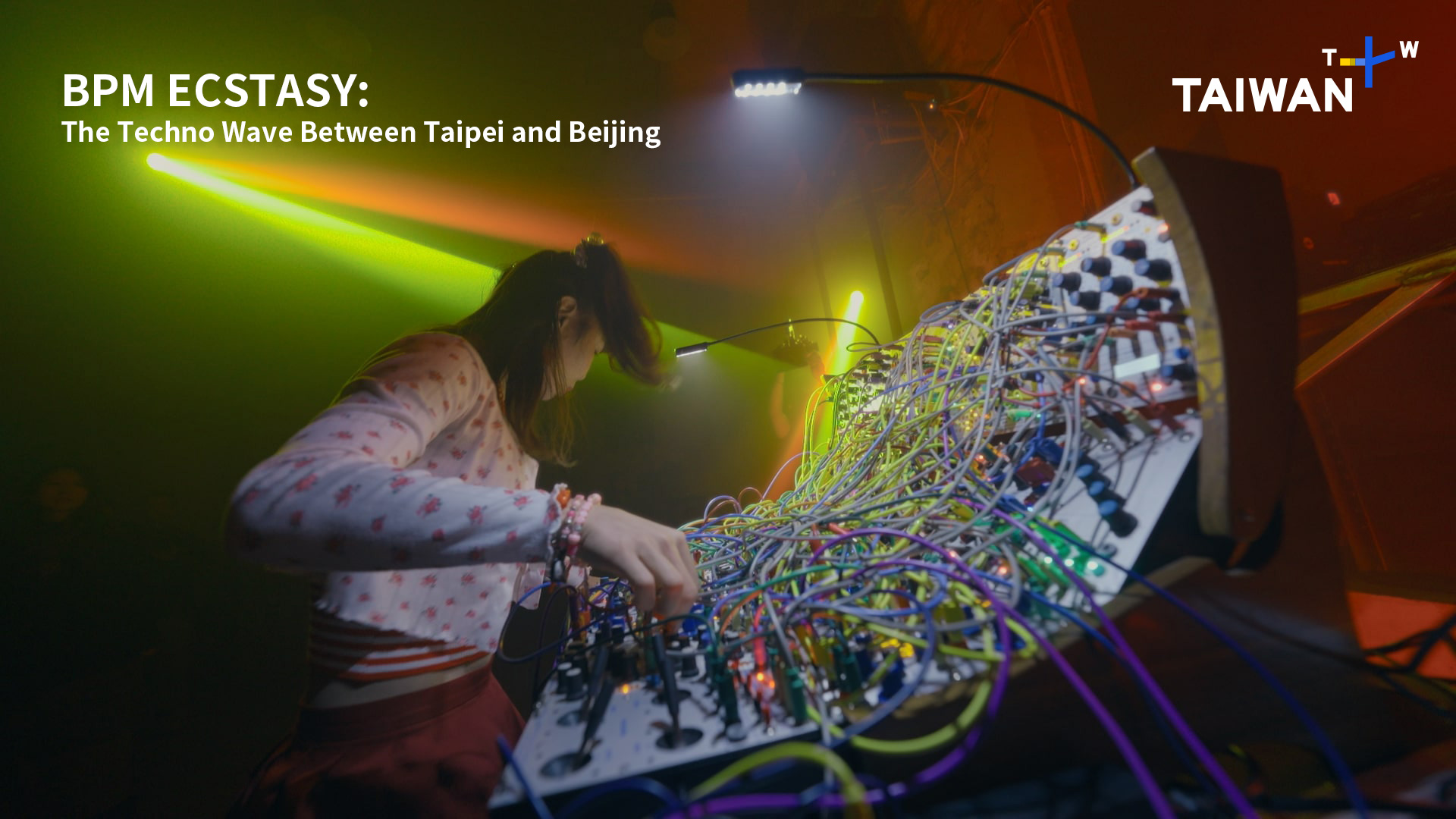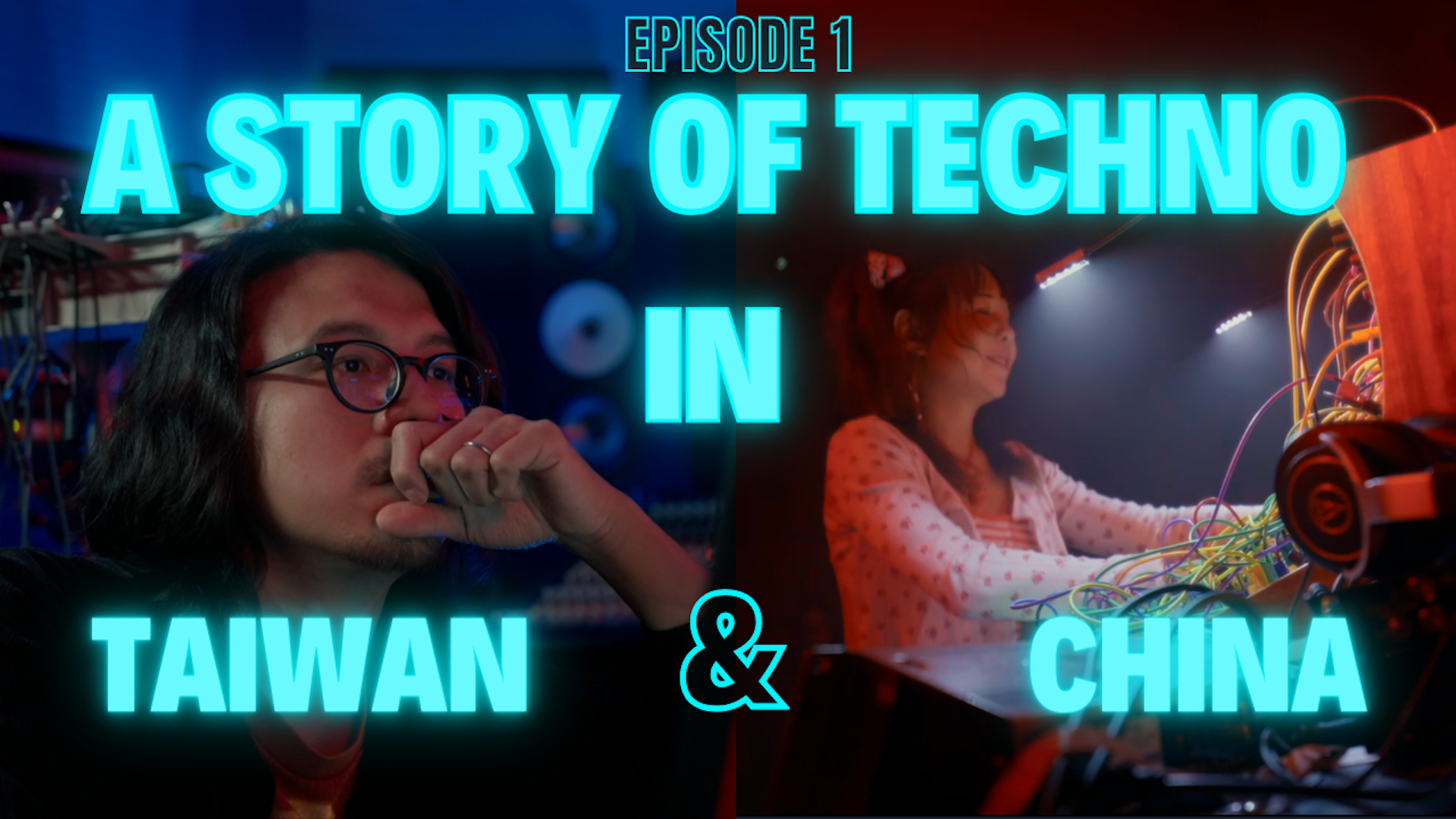by Brian Hioe
語言:
English
Photo courtesy of TaiwanPlus
New Bloom’s Brian Hioe spoke Olivier Richard, the director of the new TaiwanPlus documentary series, “BPM ECSTASY: The Techno Wave Between Taipei and Beijing.” The documentary can be seen on their YouTube channel.
Brian Hioe: Could you first introduce yourself to readers who don’t know you?
Olivier Richard: My name is Olivier Richard. I’m from Paris. I’m a documentary director and also a comic book writer as well as a press journalist. I’ve been interested in the Chinese and Taiwanese scenes for about 15 years, especially the Beijing one. I directed four documentaries about the Beijing scene. The first one was called Beijing Calling.
It was done in 2014 for French public TV about the independent scene in Beijing. The second and third were for a small cable channel in France about the metal scene in Beijing. And the fourth one, we directed a movie about metal music around the world. Which allowed me to go to Taipei and I met two bands from Taipei, including Freddy Lim’s band.

Photo courtesy of TaiwanPlus
I was in Taipei for a techno music magazine, which allowed me to meet Lim Giong and other bands like White Eyes and other bands like Fire EX. One of the magazine’s stories was about the panorama of the scene, introducing the scene to western readers and another one focused on the techno scene with Lim Giong, PCB, and other bands. And here we are:
BH: Where did you get the idea for this documentary, then? Because it does come out of this history of documenting the kind of scenes in Taipei and Beijing.
OR: Since I did already three movies about the rock scene in Beijing, I noticed that in Beijing the electronic scene was very active and very independent. And so I said, why not do a documentary about the scene?
I had talks with a production company and they agreed to the project. We thought it could be interesting to cover also Taiwan, since one of the characters was in Beijing at the time. Elvis, also known as HWA, was in Beijing when I first came to prepare
Because of COVID, nothing happened for more than two years and so he came back to Taipei. I thought it could be interesting to have him as a guide, such as that the prodigal son comes back to Taipei.
It could be the perfect introduction to emphasize the connections between the two scenes and the fact that the Taiwanese scene, is very lively and has a lot of brilliant artists. You know, for Taiwan, when you speak of Taiwan in France, artistically they speak about movie directors like Hou Hsiao-shien.
May Day just played in a 15,000-seat venue in Paris. Most of the audience was probably Asian people. But you never hear about the independent scenes in the mainstream media and also in the musical-oriented magazines. We have some timesthis occursd–like for example, Tzusing’s last album had reviews in Liberation, which is one of the main newspapers in France.
The idea was to show the complement of the influences and the fact that both cities have great artists. So we did a movie and it was a long process because it was long to develop and we lost more time because of COVID, of course.
Everything was green-lit when Taiwan still became reachable again. A few weeks later Beijing became reachable again so we were able to film in March. It was just a few weeks after New Year so it was at the time in Beijing you didn’t have any tourists. It was very interesting and clubs were reopening so it was interesting to be able to film this time.

Photo courtesy of TaiwanPlus
BH: So how did TaiwanPlus become involved then?
Our partner had a good relation with them. We pitched them the film and they were interested, so I had to rewrite everything to include Taiwanese artists. It was originally a Beijing-only film. And we talked with them and they were very fast. They want to show the wide variety of things you could find in Taiwan beyond stereotypes, they also want to show that you have an independent scene which is very lively.
I know they put online a series about some bands in the past like White Eyes and other bands. They were filming them playing and doing short interviews. They were interested in this project because they wanted to make the Taiwanese scene more famous than in the West.
BH: What was involved in deciding who appeared in the film? How did you decide who should appear in the film and what was featured?
OR: Oh, I chose everything. In Beijing, I knew the scene pretty well. And you don’t have that many clubs over there. And the idea was to follow the three main characters. We have two girls on the Chinese side and we wanted to be able to go to places that represent the city.
In Taipei, we spoke with Elvis and we went to places where something was happening. For example, we chose Final because Tzusing was organizing an evening party for his label, which was cool because we also had Lu Jiachi, who appears in the movie, play that day. And in 23 Music Room, we had Sonia Calico.
Regarding Grey Area, it’s because Elvis was planning to organize something for his new label over there. And regarding Taboo, it’s my choice because when I visited for the first time Taipei, I went to Taboo. The idea was to show the nightlife of the city and I thought the place was very cool. So I told Elvis why I wanted to go there, and he was up for that.
The idea was never to show like a guide of all the clubs of every city. For example, in Beijing, you have some clubs which we didn’t film, because some of them don’t allow people to come with cameras. Rather than a guide, we wanted to follow the two Beijing artists who are in the scene coming back to life after COVID, so we follow them in what they do.
The same with Elvis. We went to places where he wanted to go and where the artists we chose together were performing. It’s a glimpse of the city. It’s not like a rough guide of all the clubs you have to go to.
We could say 50% of the artists who appear in Taipei or Taiwan were chosen with Elvis and the 50% I chose. Since I already knew Lim Giong, I thought that we couldn’t make it without him. It’s the only sequence which is not filmed in Taipei. It was filmed in Taichung.
BH: I’m curious then about some of the other kinds of topics in the film, because for example, talking about creative freedoms between Taiwan and China. There’s a discussion of the ability to access information, for example, by artists on both sides. Can you talk about how you tried to work on that in the film? Because it is of course a sensitive issue.
OR: Yeah, it’s a sensitive issue, but actually it’s not a sensitive issue for the musicians. It’s very interesting to realize that the artist from both sides, belong to the same brotherhood, as techno music people and Mandarin speaking people.
BH: Were there any differences in shooting between Taiwan and China?
The Taiwanese production is basically making a feature film. You have a bigger crew. And in Beijing, you have to be very swift. If the crew is huge in China you need a thousand authorizations, so you need to be to work like a news team. It’s a smaller crew.
The cities are just different in terms of architecture and climate. Taipei is very humid and Beijing is very dry. The idea was to have different photography and different styles. Beijing is huge, like Los Angeles. You spend hours driving to go from one place to another or you spend days in the subway. Taipei is very comfortable and very friendly.
Taipei is kind of serene, you know, serene, very nice. It’s active but serene. And Beijing is very hardcore, could be very hardcore, but in the positive way–I’m not saying it’s not pleasant, I’m saying it’s very exciting.

Photo courtesy of TaiwanPlus
BH: What else would you point to as a difference between the scenes?
OR: In China, you have 400 million people who are between 15 to 34. It has more people than the global population of the US and as many people as the European Union. Of course, in this crowd, you have many, many artists. Some most of them can’t make a living out of their art because it’s very difficult to make money when you are an artist–everywhere around the world., but especially in China because they don’t have the economic infrastructure to make money out of comics or to make money out of independent music.
By contrast, in Taiwan, the market is very small. So that’s why Taiwanese artists are always happy to play in Guangzhou or Shanghai or Beijing because it’s a new territory. You don’t have that many places to play in. You can play every six months, but you don’t have to play every month at the same club in Taipei.
You have to go elsewhere. And elsewhere means many of them go to Hong Kong, to Singapore, and to the Mainland. In the film, Tzusing, who’s the most international of the artists in the film, says that if you want to make a living out of your art, you should move to Europe.
Hopefully, the Taiwanese and Chinese artists will be able to make money and to make a living out of their art without moving to Europe, because they have the talent.



